SUMMARY
This is AI generated summarization, which may have errors. For context, always refer to the full article.
![[Time Trowel] There is more to archaeology than Indiana Jones’ pistol and whip](https://www.rappler.com/tachyon/2023/12/tl-timetrowel.jpg)
A trowel (/ˈtraʊ.əl/), in the hands of an archaeologist, is like a trusty sidekick – a tiny, yet mighty, instrument that uncovers ancient secrets, one well-placed scoop at a time. It’s the Sherlock Holmes of the excavation site, revealing clues about the past with every delicate swipe.
My fascination with archaeology started in the early 1980s when I watched Temple of Doom in a Sorsogon cinema. Soon after, my parents provided me with a children’s encyclopedia that kindled my lifelong love for reading, despite their financial sacrifices to afford it. The acquisition of knowledge shouldn’t cost an arm, hence, spaces such as Rappler provide the venue for knowledge dissemination, which I hope will inspire curiosity, particularly about our rich archaeological heritage.
But first, about myself: I am an anthropological archaeologist whose work is rooted in the exploration and understanding of Southeast Asia’s historical and cultural landscapes. Majority of my work so far, has been focused on Ifugao history and their terraces. I am a professor of anthropology at the University of California Los Angeles, and serve as the director of the UCLA Center for Southeast Asian Studies and the chair of the UCLA Archaeology Interdepartmental Program. I was born and raised in Tinambac, Camarines Sur. I completed my elementary education at the Tinambac Central School; received my high school diploma from Naga College Foundation; and earned my BA in Anthropology from the University of the Philippines. I was very fortunate that along the way, I met people who recognized my potential and pushed me to aspire for advance degrees. Soon after UP, I went to the University of Hawaii-Manoa where I received my MA and PhD degrees in Anthropology.
Four decades after that first exposure to archaeology, I embark on a project to demystify the discipline. There is more to archaeology than Indiana Jones’ pistol and whip. I am honored that Rappler, a platform known for its commitment to truth and impactful reporting, for the opportunity to share the captivating world of archaeology with a broader audience.
My research is focused on disentangling the layers of our past, understanding how past societies lived and interacted, and how these processes continue to shape the world we live in today. Southeast Asia, with its diverse cultures, languages, and histories, offers a vibrant field for such explorations. This region, often overshadowed in global narratives, is a treasure trove of stories waiting to be told, lessons waiting to be learned, and mysteries waiting to be solved.
Central to my work is a commitment to community engagement. I believe that archaeology is not just about excavating artifacts or studying ancient ruins; it is about connecting with the communities that consider these sites their home. It’s about listening to their stories, understanding their perspectives, and respecting their heritage. This approach has not only enriched my research but has also helped bridge the gap between academia and community heritage.
Another significant aspect of my work involves advocating for curricular development that underscore Indigenous and local histories. I am one with our educators who regard our education as a powerful tool shaping how we view our past and, consequently, how we understand our present and envision our future. Thus, by integrating indigenous histories and perspectives into our curricula, we hope to provide a more inclusive, accurate, and respectful representation of our shared histories. This is especially crucial in a region as diverse as Southeast Asia, where each community holds a unique piece of the historical puzzle.
Through this column, I aim to bring you stories from the field, insights from our research, and perspectives on how archaeology can contribute to a deeper understanding of our world. We will delve into the dynamism of Southeast Asian cultures, explore the role of archaeology in contemporary society, and discuss how we can all play a part in preserving and respecting our shared heritage.
Another core motivation for writing a column on history and heritage is my advocacy to facilitate a dialogue across differences, not just within academia but across society in general. In today’s world, where divisions often overshadow our commonalities, understanding our shared history becomes a powerful tool for bridging gaps and building tolerance.
History, as uncovered through archaeology, tells us that our ancestors, despite their diverse cultures and backgrounds, shared similar challenges, joys, and aspirations. This perspective is crucial in promoting empathy and respect in our contemporary society. By exploring the past, we can learn how different societies interacted, adapted, and even thrived through cooperation and mutual respect. These lessons are invaluable in our current global context, where dialogue and understanding across cultural, political, and social divides are more important than ever.
Agreeing to disagree
Scholarly disagreements move our discipline forward. Debates are not just inevitable; they are beneficial. Firstly, debates stimulate critical thinking and innovation, mainly through the peer review process. Archaeology is traditionally a discipline that studies the past by interpreting materials associated with human behavior; materials that are often ambiguous or incomplete. Different interpretations of this evidence are not only natural but necessary. When scholars challenge each other’s theories and interpretations, it requires a deeper level of analysis and encourages the exploration of alternative perspectives. This process of critical evaluation is fundamental to scientific progress.
Secondly, disagreements in archaeology often lead to the improvement of various methodologies. As we argue each other’s interpretations, we also assess the methods used to arrive at these conclusions. This scrutiny should lead to better archaeological techniques, such as advanced dating methods, more effective excavation strategies, or better research design. The constant development of methodologies ensures that the discipline remains dynamic and adaptable to new challenges and discoveries.
Thirdly, different perspectives make our discipline diverse – which is essential in a discipline that deals with human history across time and space. Archaeology, by its nature, should not conform to a single narrative or viewpoint. The inclusion of diverse opinions, be they from different cultural, geographical, or theoretical backgrounds, enriches the discipline. It ensures that archaeology does not become stagnant or myopic, but rather remains an exciting field reflective of the multifaceted nature of human experiences. Scholarly disagreements often lead to more comprehensive research. In our efforts to support or refute theories, archaeologists are motivated to conduct more thorough investigations, sometimes revisiting previous sites or reanalyzing artifacts with new technologies. This thoroughness not only strengthen the discipline’s rigor but also often leads to new discoveries and insights. Lastly, disagreements contribute to archaeology’s educational value. These debates are not confined to the academic sphere but often extend to the public domain, where they can stimulate public interest and understanding of the past. By engaging with different interpretations and theories, the public gains a more nuanced perception of history and the process of scientific inquiry and makes archaeology less esoteric.
More importantly, scholarly debates are not a hindrance but the driver behind the discipline’s progress. They stimulate innovation, methodological advancement, diversity of perspectives, comprehensive research, and public engagement. Far from undermining the discipline and disrespectful of others, these scholarly debates ensure that archaeology remains a continually evolving field, dedicated to uncovering and understanding the complexities of the human past, the present, and the future.
Preparing for the future by looking back
This column is more than just a space for sharing archaeological discoveries; it is a platform for initiating conversations, challenging perceptions, and encouraging a more inclusive understanding of our past. It’s an invitation to engage in a dialogue that transcends academic boundaries. Through these discussions, we can build a society that values diversity, respects different perspectives, and learns from the wisdom of our ancestors.
I am grateful to Rappler for providing this platform. Please join me in this new adventure and direction in my career. I look forward to not only sharing my insights and experiences but also listening to and learning from you, the readers. Your perspectives, questions, and ideas are what will make this dialogue truly enriching. Together, let’s explore the past, understand its relevance to the present, and use these insights to build a more accepting and connected future. – Rappler.com
Stephen Acabado is professor of anthropology at the University of California Los Angeles. He directs the Ifugao and Bicol Archaeological Projects, research programs that engage community stakeholders. He grew up in Tinambac, Camarines Sur. He can be reached at @stephenacabado.bsky.social
Add a comment
How does this make you feel?
![[OPINION] An anthropologist on rethinking history to inspire the future](https://www.rappler.com/tachyon/r3-assets/612F469A6EA84F6BAE882D2B94A4B421/img/DCE399CF0A8849CEAF6FAA3C699C98DB/ispeak-red-race-640.jpg?fit=449%2C360)
![[OPINION] Where should academics stand in times of injustice?](https://www.rappler.com/tachyon/r3-assets/612F469A6EA84F6BAE882D2B94A4B421/img/F414AA873A104E3D86526CB737EF62C3/academics-injustice.jpg?fit=449%2C360)


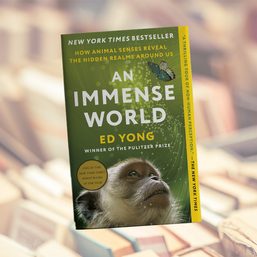
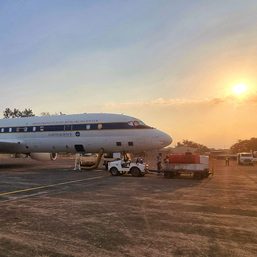
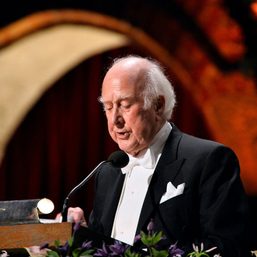
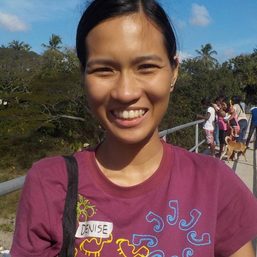
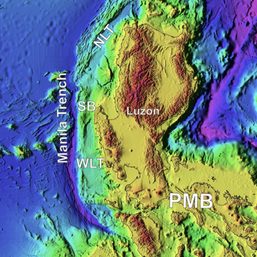
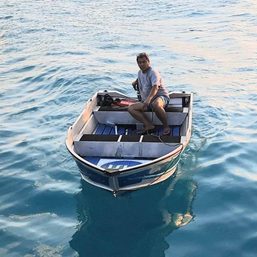
There are no comments yet. Add your comment to start the conversation.